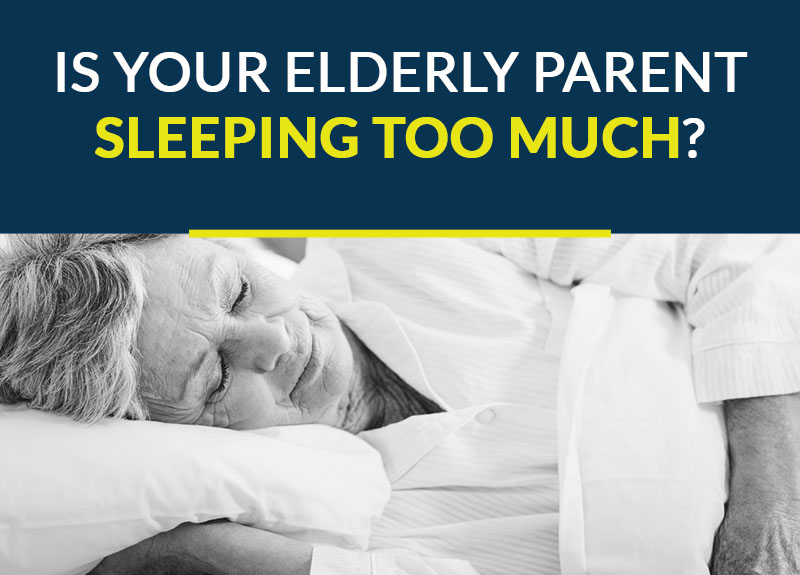Whether you care for an elderly parent or loved one or just care about them, you may notice some changes in their daily routines, their behaviors, or their emotional state as they get older. With regard to their energy level and sleep, you might be wondering if they’re sleeping too much. While some of these changes can be expected with age, others may be a sign of more serious issues or the onset of a terminal illness in need of care. While doctors are an important part of keeping your loved ones healthy and can monitor their health, they only see them sporadically. You however see your loved ones on a regular basis and can recognize when things are “just not right.”
Understand What Hospice Offers for Those With Life-Limiting Illnesses
Call our Las Vegas Hospice (702) 509-5276
Is Your Elderly Parent Sleeping a Lot During the Day?
Lately, you’ve been noticing that your elderly loved one is sleeping more and more and at strange times. They are taking naps more frequently and may even fall asleep at inopportune times. You want them to get the rest they need, but you are starting to become anxious.
- Are they sleeping too much?
- Is there an underlying problem, and excessive sleeping is just the symptom?
- Are they not getting enough quality sleep?
- What can you do to help?
Excessive Sleep in the Elderly: What Is Normal?
It can be difficult to know what is normal when it comes to sleep and what is a sign that there’s a bigger issue at play. No matter your age, good sleep is one of the most important aspects of overall health. It allows our bodies to heal and repair, curbs inflammation, wards off depression, improves our ability to think clearly and reason, improves memory, lowers our risk of obesity, and much more. When we don’t get enough sleep, we are at a higher risk for many physical and emotional illnesses, as well as poor judgment, falls, and other types of accidents.
Some sleep experts suggest that seniors actually need less sleep than other age groups. Most people need between 7 and 9 hours of sleep whereas many seniors can get away with 7.5 hours. Other experts believe that seniors need just as much sleep as the rest of the population. However, as we get older, we experience lighter sleep, waking up throughout the night, and may have more difficulty getting to bed.
Related: 7 Challenges Children Face When Becoming Their Parents’ Caregiver
The Causes of Excessive Sleep
Excessive sleep may occur for several reasons including:
- Poor sleep quality at night
- Side effects of medication
- Emotional challenges like depression or anxiety
- Lack of emotional stimulation leading to boredom
- Underlying health problems
Healthy Sleep Habits
For some, a good night’s sleep may just be a matter of developing good sleeping habits such as:
- Avoiding caffeine or other stimulants in the late afternoon or at night.
- Exercising early in the day rather than in the evening.
- Going to bed at the same time each night and waking up at the same time each morning.
- Creating a relaxing, quiet, comfortable environment to sleep in.
- Using your bed for sleeping and romance, nothing else.
- If you can’t sleep, getting out of bed and doing something else for awhile instead of laying there awake.
- Drinking the bulk of your daily liquid earlier in the day to avoid frequent nighttime bathroom trips.
Sleep and Hospice
There are certain situations where it can be expected for your loved one to sleep more than normal. When a patient is in hospice, whether it be due to aging or a terminal illness, they may sleep a lot. The point of hospice is to keep a patient as pain free as possible until they make their transition. One of the ways they do this is through pain medication rather than curative treatment. Pain medications can cause drowsiness and excessive sleep, so if your loved one is currently in hospice, you needn’t be concerned about how much they sleep so long as they remain comfortable.
Related: End of Life Timeline: Signs & Symptoms of the Dying Process
Sleep keeps us healthy and is a great barometer for our overall health. Excessive sleeping or poor sleep is not something to be taken lightly as it can be a sign of a serious problem and can lead to serious issues. If your loved one is having a difficult time getting to sleep, staying asleep, experiencing poor quality sleep, or is sleeping excessively, it’s important to seek out a professional opinion. A doctor can run the tests necessary to see if there is an underlying illness, if their medication needs to be adjusted, or if they just need more activity in their days. They can work with you to ensure that your loved one is as happy and healthy as possible.


